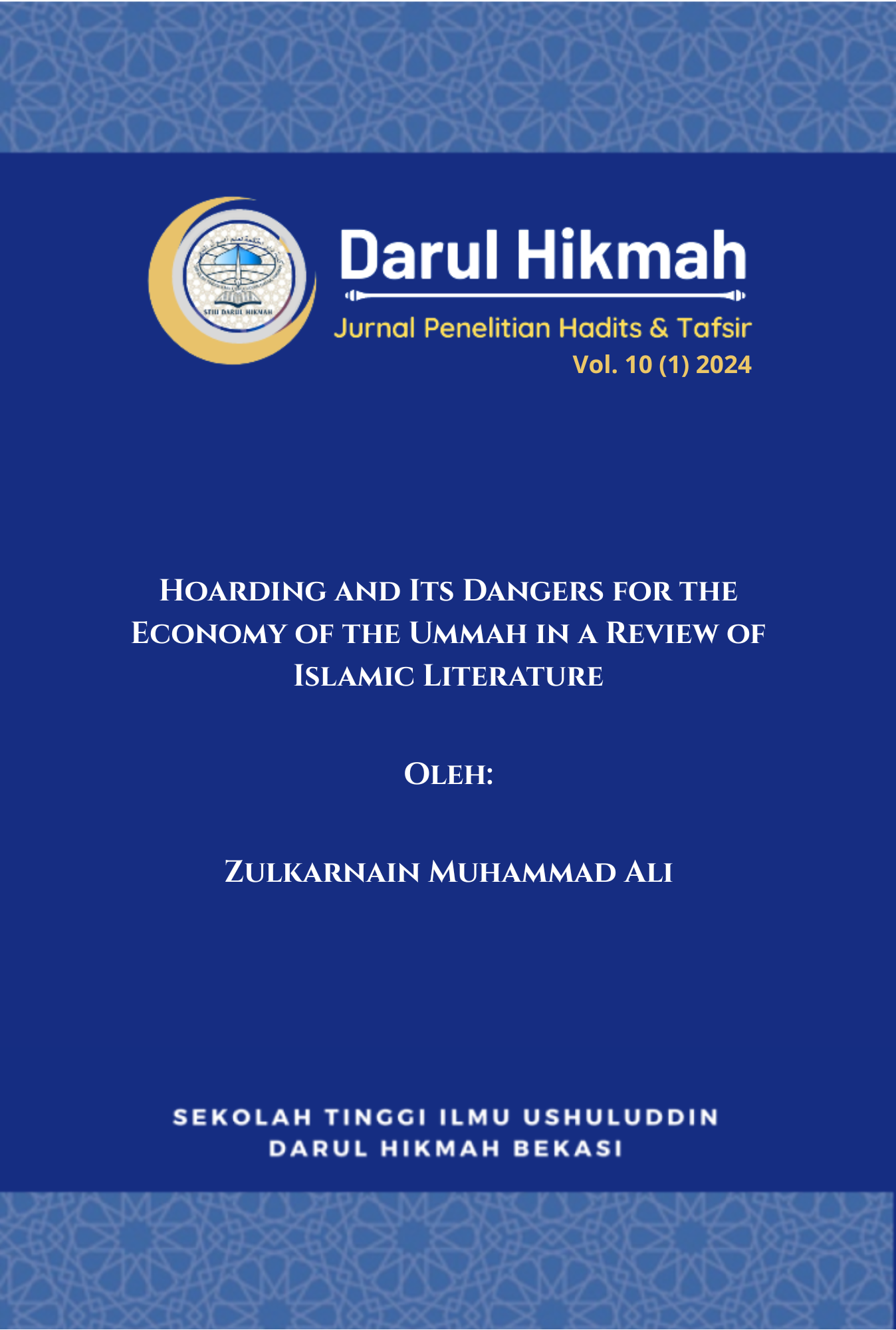Hoarding and Its Dangers for the Economy of the Ummah in a Review of Islamic Literature
DOI:
https://doi.org/10.61086/jstiudh.v10i1.56Kata Kunci:
Penimbunan barang, Bahaya, Perekenomian Umat, Literatur IslamAbstrak
Hoarding of necessities frequently occurs in Indonesia, such as during the 2020–2022 Covid-19 pandemic, when personal protective equipment (PPE) and cooking oil became scarce. The primary cause is the behavior of some traders who hoard and monopolize goods, thus hampering distribution, leading to scarcity and unreasonable price increases. This study aims to examine the dangers of hoarding for the Muslim economy from an Islamic literary perspective and to find preventative solutions. This study used a qualitative method with a library research approach and descriptive analysis. The results show that the practice of hoarding has been known since the time of the Prophet Muhammad. In Islam, hoarding of goods is forbidden because it can reduce the availability of goods and increase prices unfairly. Classical and contemporary scholars agree that hoarding wealth or goods that harm others is reprehensible. However, Islam permits someone to keep wealth or goods for personal and family needs as long as it does not harm others. Ihtikar or hoarding is a form of unethical trade based on greed and solely oriented towards profit. The Quran and Sunnah emphasize that those who engage in ihtikar are committing a grave sin and will be punished in the afterlife. Therefore, the government plays a crucial role in preventing the practice of ihtikar through market supervision and optimizing the function of the Hisbah institution, which plays a vital role in maintaining economic, social, and moral justice in society.













